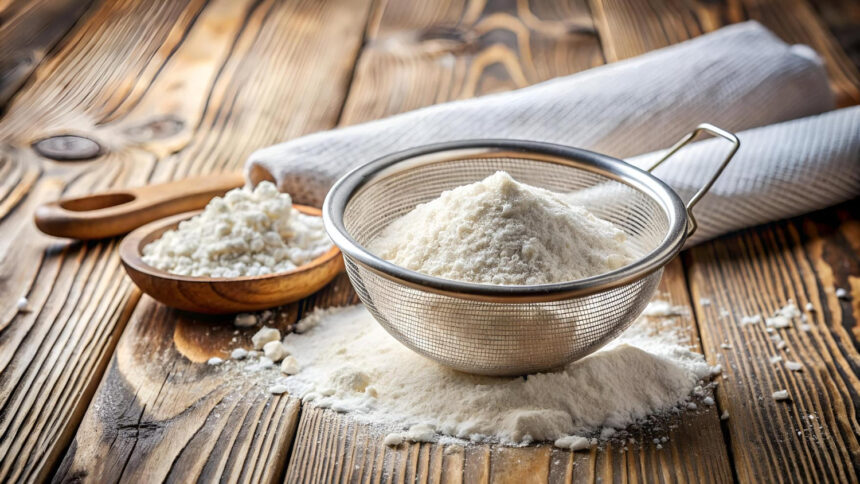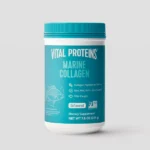Psyllium husk powder is gaining attention as a versatile supplement known for its many health benefits. This soluble fiber can help improve digestion, manage cholesterol levels, and support weight loss efforts. Many people turn to psyllium husk to relieve constipation or maintain a healthy gut, making it a valuable addition to their daily routine.
Derived from the seeds of the Plantago ovata plant, psyllium husk acts as a natural bulking agent. When mixed with water, it expands and forms a gel-like substance that helps to absorb excess water in the intestines. This property not only aids in digestion but can also help regulate blood sugar levels and promote heart health.
Adding psyllium husk powder to meals or drinks is easy and can be done in various ways. Whether mixed into smoothies, oatmeal, or baked goods, it offers a simple method to enhance fiber intake. Exploring its uses and benefits can lead to improved overall health.
What Is Psyllium Husk Powder?
Psyllium husk powder is a natural fiber supplement made from the seeds of the Plantago ovata plant. It is known for its health benefits, particularly in digestive health and cholesterol management. The following subsections detail its origin and how it is processed.
Origin and Plant Source
Psyllium husk comes from the seeds of the Plantago ovata plant, which is native to India and other parts of Asia. The seeds are small and oval, producing a gel-like substance when they come into contact with water. This gelatinous quality is what makes psyllium effective for digestive issues.
Psyllium is harvested during the flowering season, typically in late summer. The outer husks of the seeds are removed to obtain the beneficial fiber. This plant is cultivated primarily in the Indian subcontinent, where conditions are ideal for its growth.
Extraction and Processing
To create psyllium husk powder, the seeds undergo a careful extraction process. First, the seeds are harvested and dried. Once dried, the husks are separated from the seeds. The husks are then ground into a fine powder.
The grinding process ensures the powder retains its fiber content and health benefits. It is important to keep the powder dry and stored in airtight containers to maintain its effectiveness.
Psyllium husk powder is commonly available in health stores and online, making it easy for consumers to incorporate into their diets.
Health Benefits
Psyllium husk powder offers several health benefits that support digestive health, heart health, and weight management. This natural fiber supplement plays a vital role in promoting a balanced diet and improving overall well-being.
Digestive Health
Psyllium husk is primarily known for its positive effects on digestive health. It acts as a soluble fiber, which means it absorbs water and forms a gel-like substance in the intestines. This process helps to bulk up stools, making them easier to pass.
For those suffering from constipation, incorporating psyllium into the diet can provide significant relief. Studies suggest that a daily dose of 5 to 10 grams can effectively alleviate constipation. Furthermore, psyllium can help maintain regular bowel movements and promote colon health.
Important benefits of psyllium include:
- Relief from constipation: Softens stools and enhances movement in the digestive tract.
- Promotes gut health: Supports the growth of beneficial gut bacteria.
Heart Health
Psyllium husk also contributes to heart health by helping to lower cholesterol levels. It can bind to cholesterol within the digestive system, preventing its absorption into the bloodstream. Regular intake of psyllium may reduce total and LDL cholesterol, which is often referred to as “bad” cholesterol.
In addition to lowering cholesterol, psyllium can help maintain stable blood sugar levels. This regulation is particularly beneficial for individuals managing diabetes.
Key aspects of psyllium’s heart health benefits include:
- Cholesterol management: Helps reduce levels through binding.
- Improves blood sugar control: Aids in managing diabetes effectively.
Weight Management
Psyllium husk can be a useful tool for weight management. Its high fiber content promotes a feeling of fullness, which may reduce overall calorie intake. When consumed before meals, psyllium can help curb hunger, leading to better portion control.
Furthermore, psyllium aids digestion and helps prevent bloating, making it easier for individuals to maintain a healthy weight.
Essential points for weight management include:
- Increased satiety: Helps keep hunger at bay.
- Supports healthy digestion: Prevents discomfort from overeating.
Nutritional Profile
Psyllium husk powder is primarily known for its high dietary fiber content and low caloric value. These features make it a popular choice for those looking to improve their digestive health and manage weight.
Dietary Fiber Content
Psyllium husk powder is rich in soluble fiber. Approximately 70% of its composition is soluble fiber, which plays an essential role in digestion.
- Health Benefits: This fiber can help relieve constipation by bulk-forming stool and making it easier to pass.
- Blood Sugar Control: It also slows glucose absorption after meals, improving overall glycemic response.
Incorporating psyllium husk into the diet can help meet daily fiber recommendations. The suggested intake ranges from 5 to 10 grams per day. This amount can be easily added to smoothies, yogurt, or baked goods.
Caloric Value
Psyllium husk powder is low in calories, making it suitable for weight management.
- Caloric Content: Typically, there are about 20 calories per tablespoon (about 10 grams) of psyllium husk powder.
This low caloric value allows individuals to add fiber to their diet without significantly increasing caloric intake.
It is important for those who wish to increase their fiber consumption to consider the balance of their overall diet. With minimal calories, psyllium aids in creating a feeling of fullness, which may help with weight control.
Usage and Applications
Psyllium husk powder has a variety of important uses. It serves as a dietary supplement, has culinary applications, and is used in commercial food production. Each application highlights its versatility and benefits.
Dietary Supplements
Psyllium husk powder is commonly used as a dietary supplement due to its high fiber content. It helps promote digestive health by relieving constipation and regulating bowel movements.
Recommended dosage often ranges from 5 to 10 grams daily, mixed with an 8-ounce glass of water or juice. This helps in hydration and makes the fiber more effective.
Capsule Form: Psyllium is also available in capsules, typically containing 500-625 milligrams. This offers convenience for those who prefer not to mix powders.
Incorporating psyllium into a daily routine can support heart health by lowering LDL cholesterol levels and managing blood sugar levels.
Culinary Uses
In the kitchen, psyllium husk powder acts as a thickening agent and binder. It is often used in gluten-free baking, where it improves texture and dough elasticity.
Bakers can mix it with flours such as almond or coconut to enhance structure in bread, muffins, and cookies.
Cooking Tips: To thicken soups or sauces, add a small amount of psyllium husk powder gradually while stirring. This prevents clumping.
Overall, psyllium husk adds fiber without changing the flavor of dishes, making it an easy addition to various recipes.
Commercial Food Production
Psyllium husk powder is widely used in commercial food production for its functional properties. It acts as a stabilizer, bulking agent, and fat replacer in processed foods.
Manufacturers utilize its ability to retain moisture, improving product shelf life.
Applications in Products:
- Baked Goods: Enhances texture and reduces crumbliness.
- Dairy Alternatives: Improves consistency in yogurt and smoothies.
- Snack Foods: Helps in maintaining crispness.
Its role in improving the nutritional profile of food products makes it valuable for health-focused brands.






